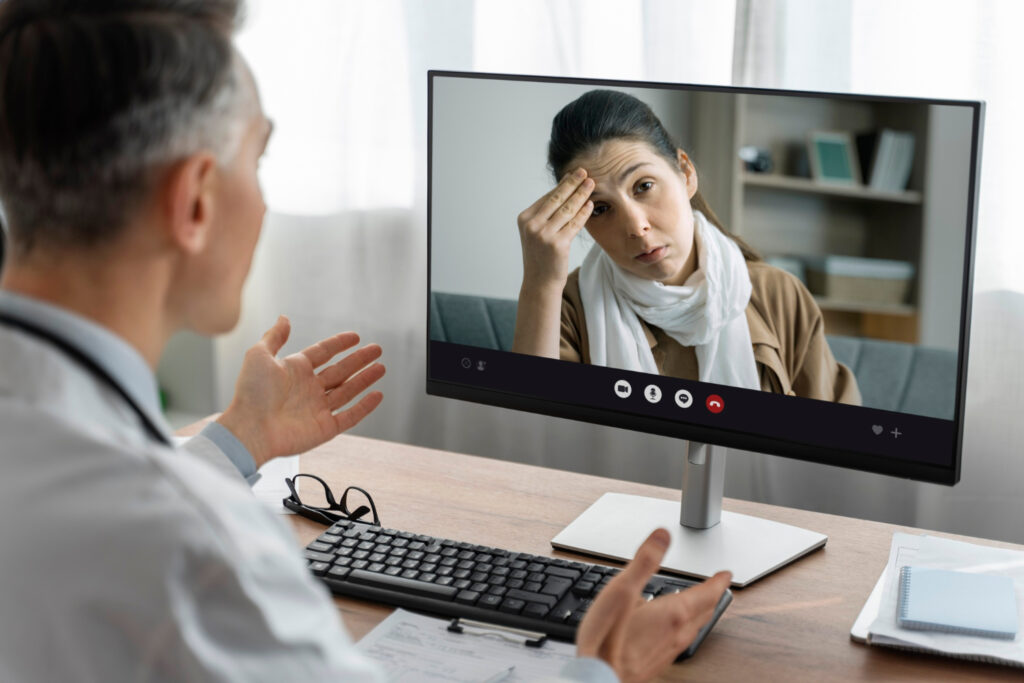In an era defined by digital transformation, it’s no surprise that healthcare has embraced technological advancements to enhance accessibility and convenience. Telehealth psychiatry, a branch of telemedicine, is revolutionizing the way we approach mental health treatment. This innovative approach leverages technology to provide remote mental health services, breaking down barriers to access and offering a lifeline to those in need.
The Accessibility Revolution
One of the most significant advantages of telehealth psychiatry is its ability to bridge the gap between mental health professionals and individuals seeking help. In traditional settings, factors like geographic location, transportation issues, and physical disabilities can be formidable obstacles to accessing quality mental healthcare. Telehealth eliminates these barriers, enabling individuals to connect with psychiatrists from the comfort of their own homes.
This newfound accessibility has proven especially crucial in rural or underserved areas, where mental health resources may be scarce. By harnessing the power of video calls, phone consultations, and secure messaging platforms, telehealth psychiatry extends a helping hand to those who might otherwise struggle to receive adequate care.
Empowering the Vulnerable
For many, the stigma surrounding mental health remains a formidable barrier to seeking help. Telehealth psychiatry offers a discrete, private alternative to traditional in-person visits, reducing the fear of judgment or societal scrutiny. This newfound privacy encourages more individuals to take the critical step towards seeking professional mental health support.
Furthermore, telehealth provides a lifeline for individuals with severe anxiety disorders or agoraphobia, who may find it immensely challenging to leave their homes. The virtual setting allows them to connect with their psychiatrist without the added stressors of a physical presence, fostering a sense of safety and trust.
Improved Continuity of Care
Telehealth psychiatry also enhances the continuity of care for individuals with ongoing mental health needs. Regular follow-up appointments and check-ins are crucial for the long-term management of conditions like depression, anxiety, bipolar disorder, and more. Through telehealth, individuals can maintain their treatment plans seamlessly, ensuring that they receive the support they need, when they need it.
In addition, telehealth facilitates collaboration between different healthcare providers, improving the coordination of care for individuals with complex mental health conditions. This integrated approach ensures that the patient receives a holistic, well-rounded treatment plan that addresses their unique needs and challenges.
Overcoming Barriers to Specialist Care
In many regions, access to specialized mental health professionals, such as child psychiatrists or geriatric psychiatrists, can be particularly limited. Telehealth psychiatry addresses this gap by connecting individuals with specialized care providers regardless of their physical location. This breakthrough widens the pool of available expertise, ensuring that patients receive the highest standard of care, tailored to their specific needs.
The Future of Mental Healthcare
Telehealth psychiatry represents a pivotal shift in the way we approach mental health treatment. By prioritizing accessibility, privacy, and continuity of care, this innovative approach is transforming lives and breaking down the barriers that have hindered mental health support for far too long.
As technology continues to evolve, so too will the potential of telehealth psychiatry. With ongoing advancements, we can anticipate even more sophisticated platforms, enhanced therapeutic interventions, and a more personalized approach to mental health treatment.
In a world that increasingly values holistic well-being, telehealth psychiatry stands at the forefront of a new era in mental healthcare – one that prioritizes accessibility, inclusivity, and the empowerment of individuals on their journey to mental wellness.






